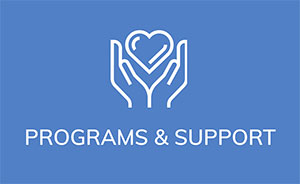Over the course of a year of monthly meetings, CLL Society Bloodline will teach the BASICS needed to understand CLL. It will also provide news, help with the acronyms and new vocabulary words, and offer simple fun quizzes.
MONTHLY QUIZ: CLL / SLL is considered an orphan disease:
- True.
- False
Answer: The correct answer is TRUE. CLL may be the most common blood cancer in adults but is still quite rare and is considered an orphan disease. An orphan disease in the US is defined as affecting fewer than 200,000 people. We already may not qualify as more are being diagnosed and living longer with CLL / SLL than are dying so numbers are growing. There are 22,000 new cases of CLL / SLL in the United States yearly. Compared to breast cancer, which has 250,000 new cases annually, and 161,000 new cases of prostate cancer, CLL is still rare. Incidence is the term used to describe the number of new cases annually. Prevalence is the number of all patients living with the disease.
NEWS: A second bivalent COVID-19 booster is now approved for the immunocompromised for use at least 2 months since a prior booster. The best timing of more boosters beyond the first 2 is not clear.
Many with CLL / SLL do not strongly respond to vaccines and might benefit from protection through passive immunity by receiving pre-made antibodies. Invivyd will be studying how well their experimental “antibody cocktail” works in the immunocompromised. A registration trial is open to study response to the vaccine booster to better understand who will get the most benefit from their antibodies. We encourage you to consider it. A link is on our website.
CLL Society’s Celebrating Long Lives 5K happens May 13th. Please sign up or contribute. Links are on the website.
THE BASICS: Treatment Choices. In prior issues of CLL Society Bloodline, we covered what needs to be done when first diagnosed, before treatment, and how to know when treatment is needed. In this issue, we broadly discuss frontline treatment choices. Treatment decision should always be individualized and depends on several factors including:
- Age, overall health, co-morbidities, other medications, and the amount of disease and its stage.
- Prognostic biomarkers (especially FISH, TP53 mutation and IGHV mutation). Don’t miss our 5/22/23 webinar.
- Personal preference.
Choices are complicated and there may be significant disagreement between well-meaning experts making it even harder to make a decision. The common first or frontline treatments broadly fall into 3 categories:
- Chemo-immunotherapy or CIT:
- FCR (fludarabine, cyclophosphamide and rituximab), BR (bendamustine and rituximab) and CO (chlorambucil with obinutuzumab) are the most common. There is a very limited role for CIT today.
- Non-chemo options:
- Ibrutinib alone or with obinutuzumab (Gazyva) or with rituximab. Rituximab does not seem to improve outcomes compared to ibrutinib used alone. Ibrutinib is being used less and less with the approvals of acalabrutinib and zanubrutinib
- Acalabrutinib with or without obinutuzumab – less side effects than ibrutinib.
- Zanubrutinib – less side effects than ibrutinib and maybe better efficacy.
- Venetoclax, usually with obinutuzumab.
- Clinical trials:
- These vary but offer excellent care, access to the latest therapies and for some may be the best choice.
All of these are explained in more detail on the CLL Society website and will be featured the upcoming Bloodlines.
One frontline therapy not approved in the US but approved in other countries and only available “off label” is the combination of ibrutinib and obinutuzumab.
WORD/ACRONYM OF THE MONTH: MRD
MRD is an acronym for measurable residual disease or minimal residual disease. We prefer “measurable”. All tests have limits of detection. Some can find a single cancer cell in 10,000 cells, another in a million. uMRD (undetectable MRD) formerly called MRD negative means that no CLL was detected at the limits of the test. This is usually very good news and can be associated with very long remissions but shouldn’t be confused with being cured. Some trials are now using MRD status to determine best CLL management.
If the CLL Society has helped you or a loved one, please consider making a donation.

















